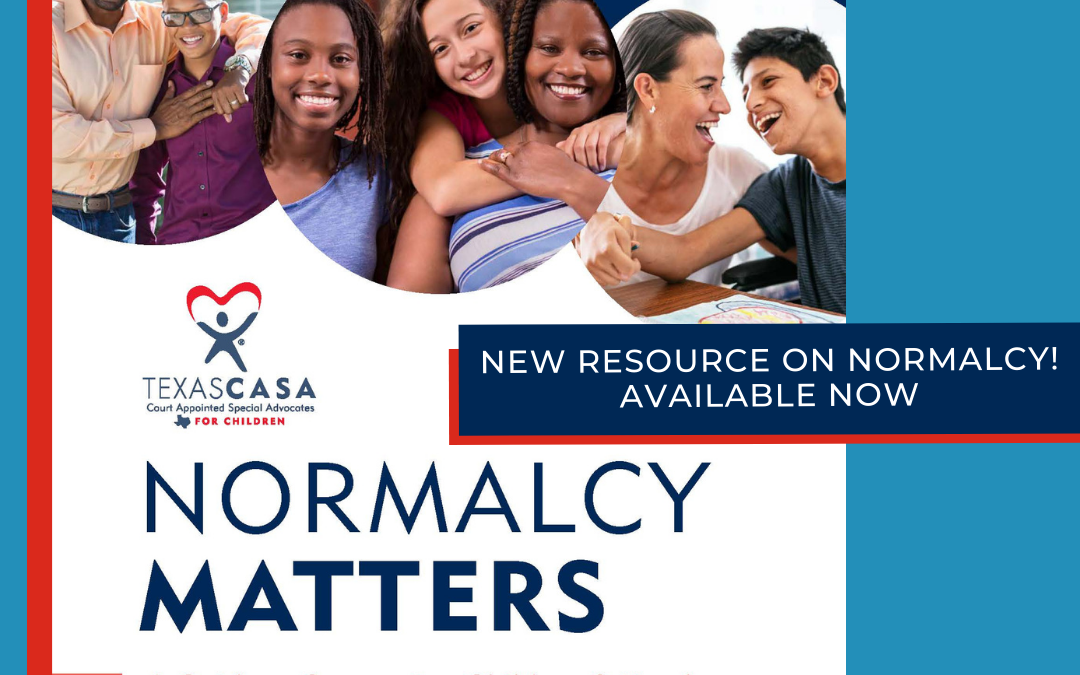Texas CASA and Foster Angels of Central Texas are excited to announce the release of Normalcy Matters: A Guide to Supporting Children & Youth in Texas Foster Care. This guide and companion video, funded by the Supreme Court of Texas Children’s Commission, were developed with the hope to help more people learn about normalcy and why it matters, and the role each of us play in supporting normalcy for children and youth in the Texas child welfare system.
The goal of this guide is to move conversations about normalcy beyond allowing activities, and to inspire a true shift in the culture of foster care in Texas. We believe that this change is crucial for young people to feel empowered in their daily lives and beyond. Foster Angels was particularly excited to be a part of this initiative because normalcy is at the core of our mission, and we are excited about creating more conversations around how we can continue to provide these opportunities to the children we serve.
What is Normalcy?
In short, normalcy is about giving kids the chance to be kids! It means helping children and youth live as full of a life as possible, with experiences typical for their age and development—everything from having the opportunity to participate in sleepovers, summer camp and extracurricular activities, to having access to a cell phone, taking driver’s education or receiving an allowance.
All of these sound like typical childhood experiences, right? Unfortunately, for young people in foster care, it’s not that simple. These kids tend to live with more restrictions and challenges than their peers, which means they often miss out on these types of activities and milestones that many of us take for granted.
How can we all support normalcy for youth?
We can all start by talking regularly with youth about their interests and goals, the clubs and activities they are interested in, and whether they are having all their physical, emotional and educational needs met. Talk to the child’s caregiver, parents and any other individuals to gather information about the activities the child has taken part in before and any activities that they would like to do.
It is important to make partnerships with the child’s parents, caseworker and other child advocates to ensure everyone is supporting and promoting normalcy. In terms of visits and other required appointments, explore if they can take place outside of school and/or work hours to avoid interruption of routine activities. While some conflicts may not be avoided, everyone can work together to prevent those barriers from adding up and keeping a child from experiencing as normal a childhood as possible while in foster care. Young people in foster care are going through things that no child should have to experience, and already feel singled out from their peers—any time we can work together to help them feel more like their peers and less like a “foster kid” can make a positive difference for their social and emotional development.
By making normalcy a true priority, encouraging open communication and collaboration, and ensuring children’s voices are heard, everyone involved in the child welfare system can help ensure a better experience for children in foster care – setting them up for success, helping them live fuller lives and giving them a better chance at a bright future.


